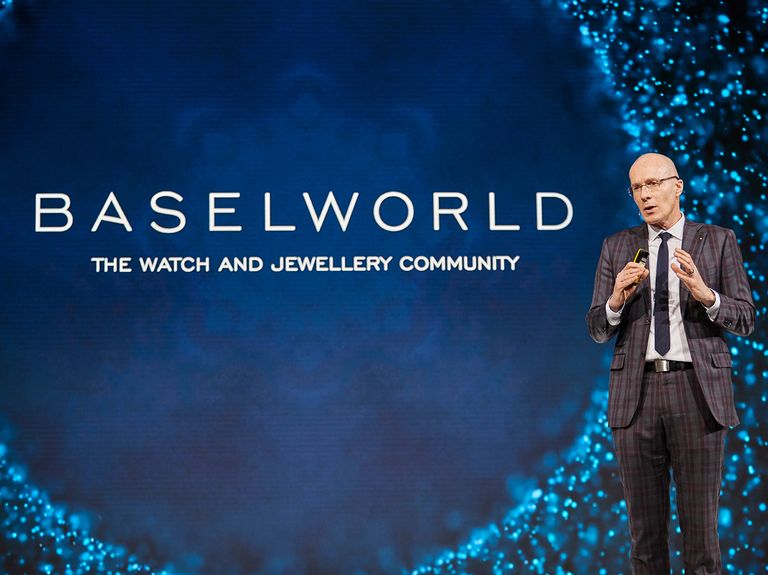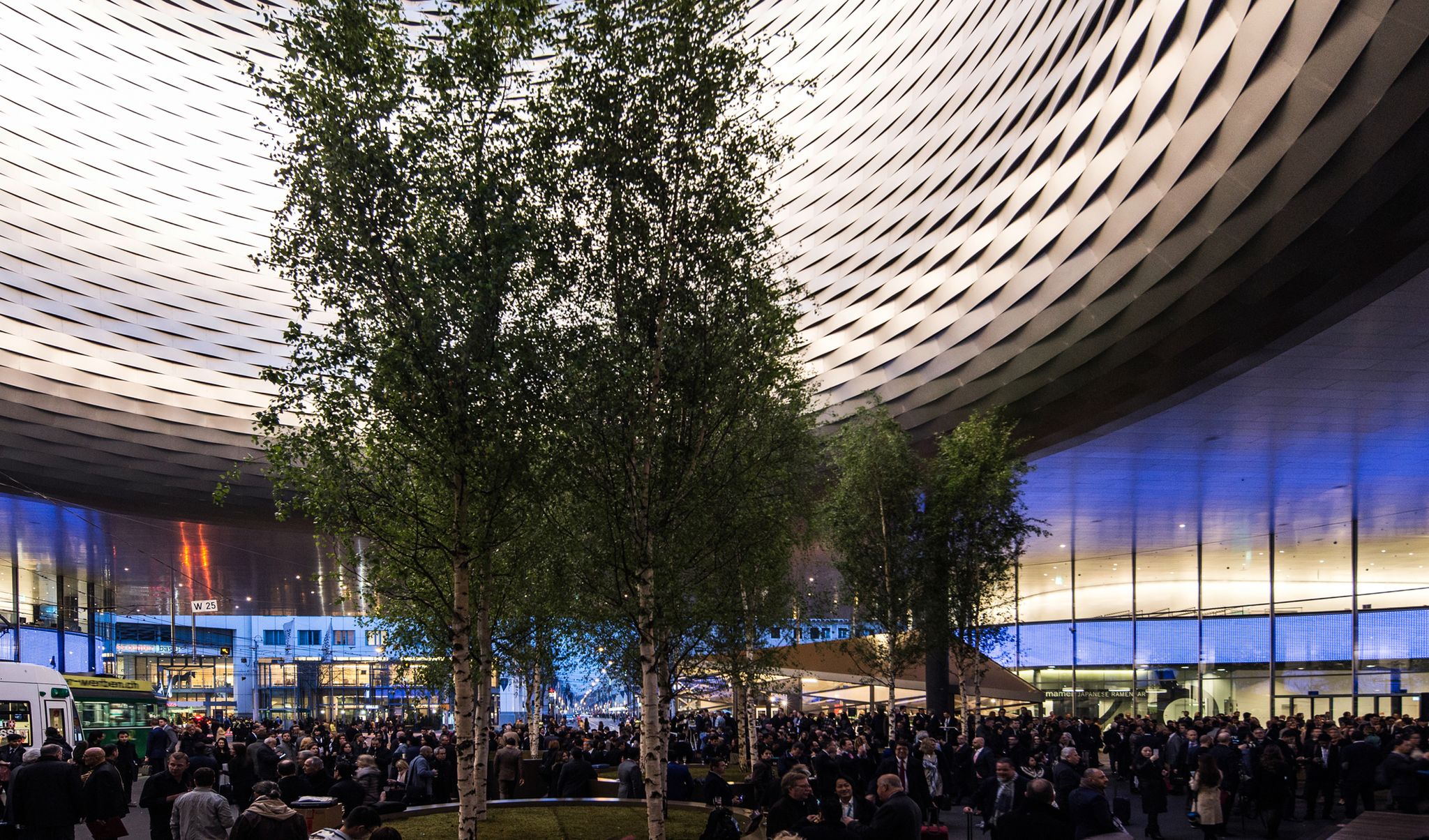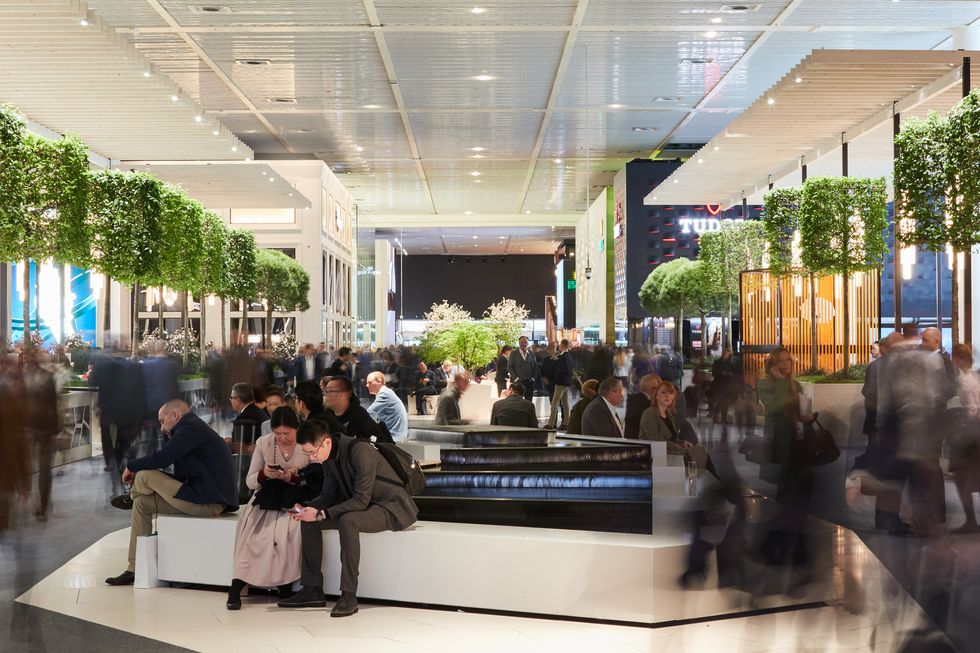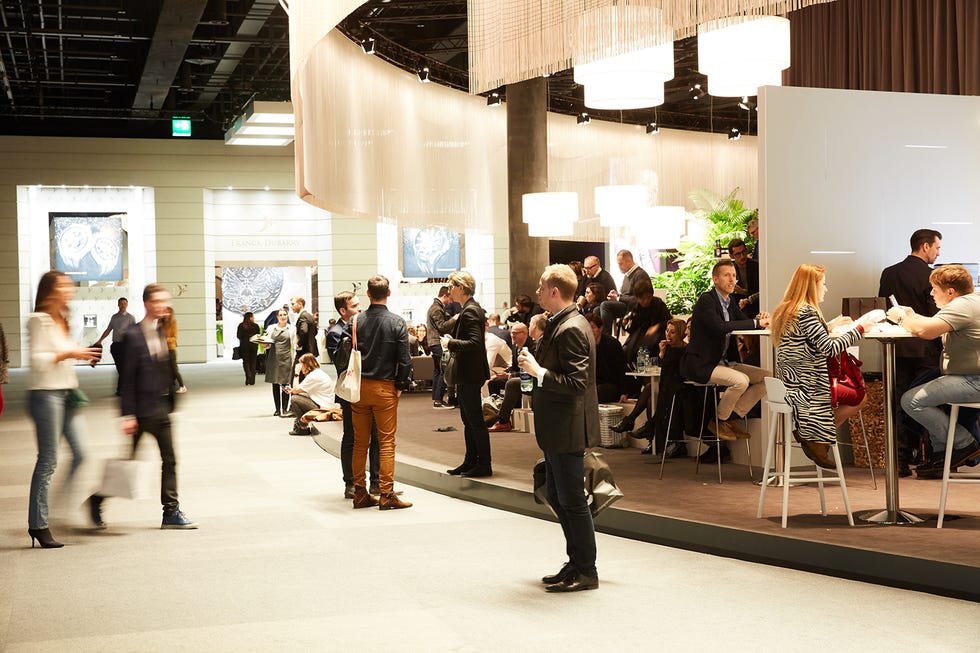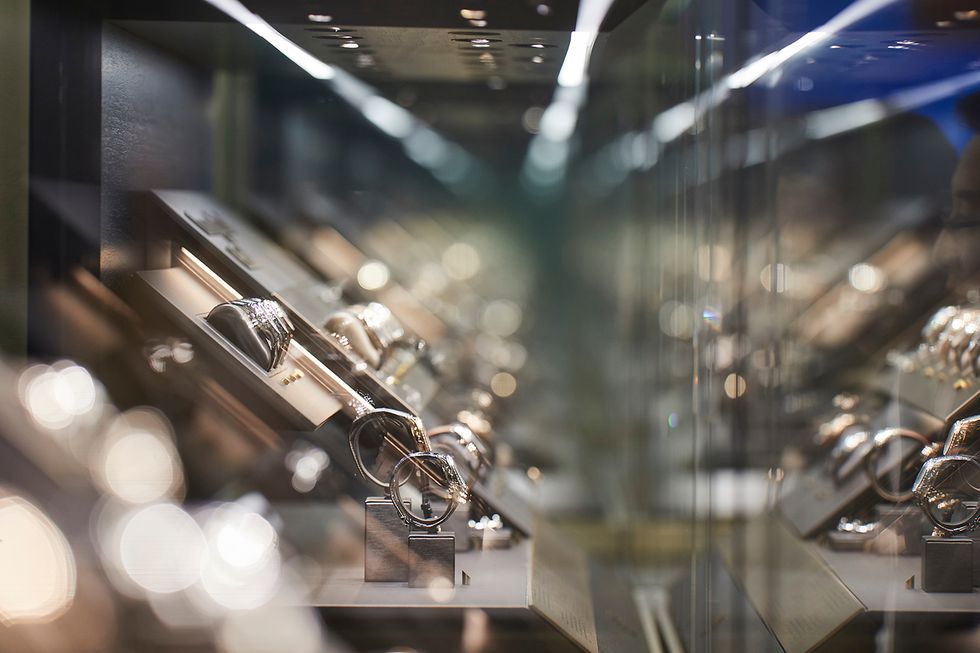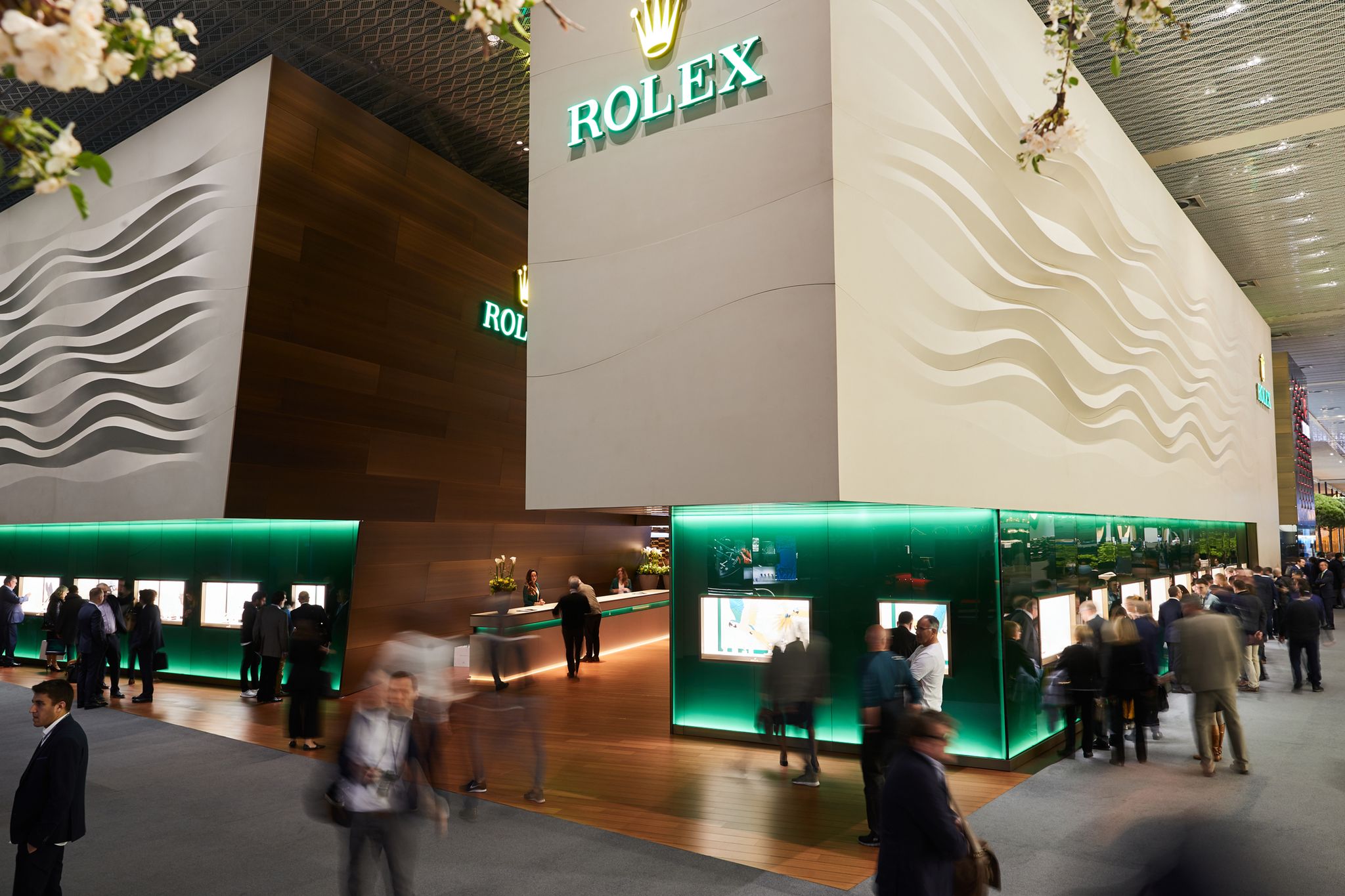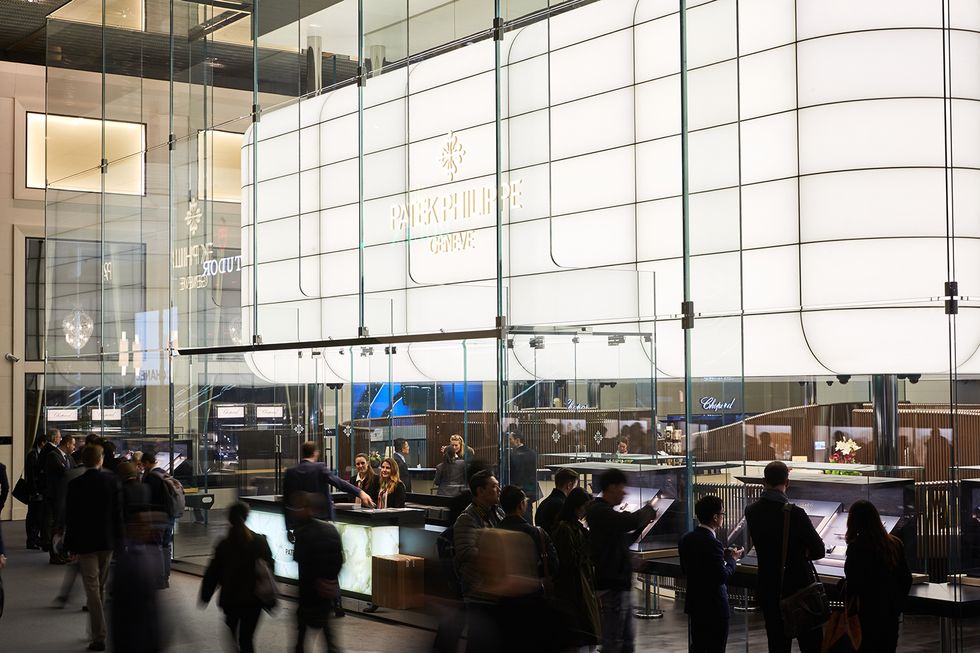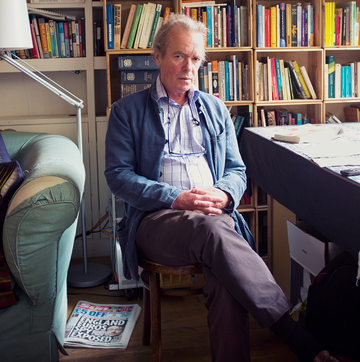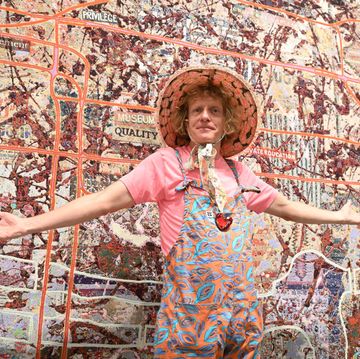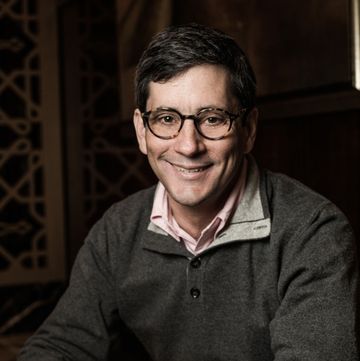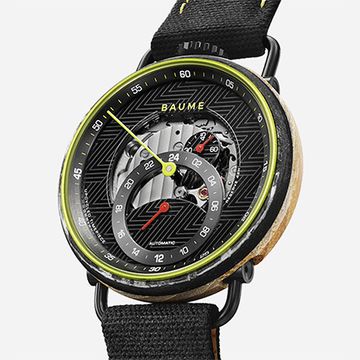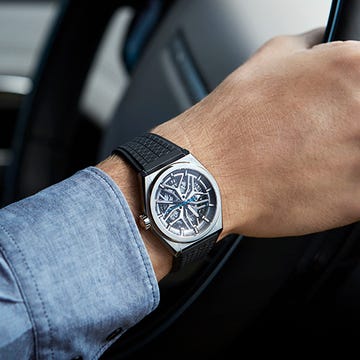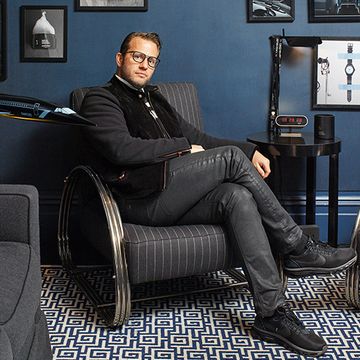Following March’s watermark Baselworld watch fair, I interviewed the show’s doughty managing director Michel Loris-Melikoff over lunch. He was appointed on July 1 last year, and given the unenviable task of stemming the tidal wave of brands flooding out of Switzerland’s principle watch show.
The interview was for a piece I was writing on the rapidly declining health of Switzerland’s oldest and biggest watch fair for the New York Times. Mr Loris-Melikoff flew into Heathrow airport and straight back out again, stopping only to talk over a bowl of Carluccio’s pasta.
In this full-length version of the interview, Loris-Melikoff lets rip about the previous regime, losing money at Baselworld 2019, Breitling, going to war (his words) with the city of Basel, taking the show out of Basel if local businesses don’t play ball, and his grand rescue plan for the ailing event.
The plan had been to publish this piece earlier in the summer to time with an announcement about a new Baselworld concierge service that would offer visitors access to much cheaper accommodation, addressing one of the primary grievances from exhibitors, visitors and press alike (more of which below). That’s been delayed twice now, and there’s no sign of local hostelries bowing just yet. Without a breakthrough, many will wonder if Loris-Melikoff has already been thwarted, and the Baselworld experience will remain unchanged. Battle continues...
Robin Swithinbank: On paper, the big problem is that Baselworld has lost more than 1,500 exhibitors, or around 75 per cent of the total 10 years ago. What’s caused this mass exodus?
Michel Loris-Melikoff: We should have started to change Baselworld in 2015. But we didn’t. When I was organising music events, the basic question was: “Do we organise an event just to make ourselves happy, or do we organise it for the audience, for the visitors?” And it was exactly the same when I started at Baselworld. Who are Baselworld’s clients? Of course, our first clients are the exhibitors because they pay per square metre. But it doesn’t make sense to only focus on our clients. We also have to think about the needs of their clients.
RS: Why didn’t Baselworld change sooner?
MLM: You should ask [my predecessor] Sylvia Ritter… Probably because when you are in a business model that works financially, you get comfortable. The world is changing so fast today. I defined a new vision for 2020 to 2022, but I’m confident that after 2020, I will have to check this vision. Because between today and next summer, the world will change. This vision we presented this year is the synthesis of many conversations. [Between July 2018 and Baselworld 2019] I had something like 830 meetings with brands, retailers, journalists, visitors, stakeholders, ateliers, many different people.
RS: That’s a lot of people to keep happy. Is that even possible?
MLM: In the past, we just focussed on the needs of the big watch brands. And as the needs of the big watch brands are just Rolex, Patek Philippe, Swatch Group and LVMH, there needs to be change. A few of them are starting to have a B2C approach; others like Patek and Rolex are still in a B2B approach.
RS: As you say, though, it’s not just about the exhibitors. Where else do you see the need for change?
MLM: I took an Excel sheet with different columns. The first was the need of big brands, then small to mid brands, then small brands. I did it for the watch industry, then for the jewellery brands and then for the gems, and then the last row was for journalists. And why did we consider the needs of the journalists? In the past, I organised events for FIFA and UEFA, and when I arrived at Baselworld I remembered the investment FIFA made for the journalists, just to make them feel happy, to make the conditions comfortable for them to work. Media people are part of this business. They are a priority, because they are directly or indirectly doing promotion for the brands. They are part of the communication for the brands, but also for us. That doesn’t mean we want journalists to write what we want to hear, because you are independent and you should be independent in the future. But even if you’re independent, that doesn’t mean I don’t have to take care of your needs and your working conditions, and the working conditions in the past, they were not good. I heard about it, but I also saw it in my balance sheet.
RS: The press were certainly better looked after this year and speaking to many of my colleagues, it was appreciated. The press centre was on the old Swatch Group plot, and then there was this long avenue, which seemed quite dead. Did the new layout work for exhibitors at the back of the hall?
MLM: The exhibitors at the back of Hall 1 had more traffic. In the event business, people go to a place with either noise or food. That’s why we put the jewellery on the second floor, with the catwalk fashion show. It brought people to the second floor. Now, we need more restaurants and we need more experiences. Probably the press centre will be on the first floor, because today I am very optimistic that we have more exhibitors on the ground floor and we won’t have space for the press centre.
When we spoke, the ink was drying on the LVMH contract, since confirmed. Hublot, TAG Heuer and Zenith are therefore confirmed for Baselworld 2020, alongside Rolex, Patek Philippe, Tudor, Chanel, Bell & Ross and others. Chopard has also confirmed its attendance since I met with Mr Loris-Melikoff.
RS: But since Baselworld this year, Breitling have confirmed they won’t attend in 2020.
MLM: We have a brand committee that includes Rolex, Patek, LVMH and Breitling. When we coordinated [dates for 2020] with SIHH, everybody was involved in this negotiation. When we announced it, everybody confirmed and said it was a good idea and they’d been expecting this for years. Nobody in the media complained. We knew that the date was late, but not too late, and so when Georges Kern called me [to withdraw from the 2020 event], I told him: “You knew this date, it’s not a surprise.” But I keep hoping that in 2021 he will come back.
RS: So Breitling’s announcement came as a surprise to you?
MLM: Maybe he wants to test his format, his own retailer summits, three times a year, on every continent. It’s a nice approach, and I want to do that at Baselworld, too. He is creating exactly what we expect. He is creating an experience. A retailer or a collector summit is exactly what people want to see.
RS: Yes, and already we’re seeing lots of brands doing their own thing. Does a trade show therefore have long-term relevance in this climate?
MLM: I’m 200 per cent convinced it does. Why? Digital possibilities make life easier. But did you buy your watch via the internet? You went to a shop because you want to know how it looks, how it feels on your arm. Ask a dealer of stones if he wants to buy stones via the internet. You won’t find anyone. And for jewellery, the same. Would you buy a necklace for half a million for your wife, without giving her the opportunity to wear it and find out how it feels?
RS: But surely that depends on the consumer? That’s the old way of doing things. The younger generation buy, or rent, or stream, everything digitally.
MLM: Maybe the Millennials. And we see it in the Chinese market – they buy everything on the internet. Maybe they don’t need this experience. Maybe they just buy, and if it doesn’t fit, they send it back. I think that digitalisation is a good additional service, but it doesn’t replace [a real-life experience]. It also has to do with passion, with touch. I don’t consider digitalisation as a threat to our business. It’s an addition, a complement. All shows have to consider this new element. If you don’t after a few years, you’re off. If we don’t think about making Baselworld a digital platform as well, after three years, we are off.
RS: On that note, in your keynote at the end of the show, you talked about a 52-week-of-the-year digital platform. What does the new Baselworld look like, digitally? Is it a content provider, a storyteller?
MLM: Baselworld should become a platform like LinkedIn. It should become a platform where you have your profile, where information comes in from many different sides: the brands, what we publish, journalists… It should be a hub dedicated to the watch and jewellery industries. It’s not a one-way communication between the brands and the consumers or journalists. It should be a multi-lateral communication between all participants.
RS: So people have to sign up, create a profile and treat it like a watch industry social media platform?
MLM: Yes, it should be something like this. But there’s a reason for us, too. I want to know who’s at Baselworld. There is a fundamental change to the past. In the past, you could go to Baselworld as a journalist. We knew you were a journalist. But we didn’t know the retailers, because the brands didn’t want us to be in contact with them, because they invited their retailers. It was like brand A has his retailers, brand B had maybe a few of the A retailers and his own B retailers… And they didn’t want us to talk to any of them, because maybe there were afraid we could say to brand C who was the retailer of brand B. But the retailers all know this – they publish the name of their retailers on their website! So I suggested that we handle retailer invitations, because we can then also provide our exhibitors with general information. Where do the retailers come from? How long do they stay in Basel? What are their interests? All this information you can have on a profile.
RS: And you’re planning to offer those retailers additional services the brands can’t offer themselves?
MLM: That’s the way I sold the service. In a few months, we’re going to announce an e-concierge. Let’s say, when you start planning your journey to Baselworld, you can tell me you’re coming from Tuesday to Friday. You want to stay in a 3* hotel not too far away and you have a budget. Maybe you want to reserve a table in a restaurant. And you want to leave from Zurich with direct trip to Heathrow. If I have all this information, I can book your trip, and I can get better conditions than you can get on the market. If I manage 500 beds in a hotel, I have a totally different to power to negotiate the price.
RS: So Baselworld becomes a travel agent?
MLM: Yes.
RS: So you’ll need a bigger staff?
MLM: I’ll do it with an external partner. The question is why should I leave the margin of all the travel activities, accommodation, travel, shuttle service, etc? Why should they make a profit thanks to Baselworld? I need additional revenues to improve my services. So I have to create these revenues, and this is what we’re doing.
RS: So you’re going into battle with the city…
MLM: I won’t be taking the whole margin. But people don’t come because Basel hotels are so wonderful and cool and the city is the best place to be in Europe. People come to Basel because Baselworld is in Basel. Before, we’ve got nothing from this.
RS: So is Baselworld going to become cheaper for visitors?
MLM: In the past, hotels added margins of 300-500 per cent during Baselworld. This is not sane. That’s abusive. During my first interview on local TV last July, I announced war on the hotels. They still hate me! I told them: “Listen, you make your business thanks to Baselworld and other shows like Art Basel. We have to work together. Either we work together, or I can leave Basel and go to Zurich, or Geneva or elsewhere.” There is absolutely no reason for me to stay in Basel. I am not obliged.
RS: Even with the overhead of the building? Isn’t it a ball and chain for the event?
MLM: Well, that’s another question… It was built because the major brands wanted something very representative [of their brand values]. The building was commissioned at a time when everything was going great, and everybody was doing high margins, and the world was in a conservative mood. But since then everything has changed.
RS: For your exhibitors, even after they’ve paid your rates, they’ve still got huge costs to consider that you can’t control. Can you control those costs?
MLM: An average price of a booth is between CHF 10 and 30 million. But if you talk about overall costs, only 45-55 per cent of the overall cost for a brand is a booth. We have to give brands a chance to reduce their cost and build a booth that is less expensive.
RS: Do you think that will help lure back [Swatch Group Chairman] Nicholas Hayek? He says he was spending $50m every year that he can now put to better use.
MLM: Well, that $50m Mr Hayek mentions, that was the overall cost. I would be happy if he pays me $50m every year… No, no. These are the overall costs. But, why do we have to change? It’s very easy. Brands have diversified their marketing expenses. That means they have less money for a show presence in Basel. So they invest less money, but they want the same visibility. So we have to think how we can reduce the booth costs to allow them still to have a nice visibility, to look cool, to respond to their new needs, and that is is more than a B2B experience.
RS: So what’s going to happen to the big booths?
MLM: The big booths show how strong a company is or wants to appear. They are impressive, but not really exciting. As these booths are so expensive, you are building it for 10 years or five years. And I want to motivate the stands to become more creative and to build booths that allow more creativity and change of decoration, style, look and feel every year, or two to three years. In the event business, we have to surprise our visitors every year. When you come to Baselworld and to Messeplatz, you want to be surprised – to have an impression. When I started, that’s what I heard – for five years, the same decoration, the same boring music, the same booths, the same layout, the same high prices… People had an experience the last five years, but not the experience I want them to have when they come to Baselworld.
RS: Visitors to Baselworld were certainly surprised this year – Messeplatz was empty when we arrived.
MLM: Yes, everybody was shocked about the entrance to Baselworld. I decided to do it as it was [without any entertainment or decoration], just to let people see and feel that something is changing. The setup we had in the past was an expense of CHF 5.8m. So we decided to put just a few trees and two street food booths. And that was it. People have to realise that it has to change. I did it consciously, and it was really to let people see something is changing.
RS: Next year will be different then, surprising?
MLM: Next year will be doing something different. Today if I want to surprise our visitors every year, I have to rethink the construction, the layout, we have to be much more efficient. I prefer to invest money in decoration, or side events, or festivals, or any pop-pop-up activity in the city. My job now is to create good experiences for everyone and to bring people in a good mood to the brands.
RS: Aren’t Baselworld’s problems bigger than that? It’s all very well surprising visitors and creating a consumer-friendly experience, but consumers don’t come to Basel.
MLM: But I want them to come to Basel. They’re not going to buy watches at Baselworld.
RS: Why not?
MLM: Logistically, and for security reasons, it’s not possible.
RS: Ever?
MLM: Let’s go step by step.
RS: That would be a real incentive for consumers, though.
MLM: If you are really passionate about watches and jewellery, for six days you have the best brands in the world in Basel. This is already an incentive. But the problem we have is that most of the booths are not laid out to receive collectors and consumers.
RS: Let’s say you do create a consumer-friendly experience and that they come for the side events and the fancy restaurants – will they be able to get onto the Rolex stand?
MLM: It’s not up to me which consumer will be received at the Rolex booth or not. But I can bring collectors to Basel. We have an impressive database of collectors and art collectors. The probability that an art collector has also a certain affinity to watches or jewellery is real. It’s the same as Masterpiece in London. You have collectors, you know them, you invite them, they go the event. I also have to organise options to make it more interesting for collectors to buy very rare items or objects. That’s what we’re thinking about.
RS: You’re talking about some big-picture ideas here, but to deliver them you’re going to need the buy-in of a huge number of stakeholders. How are you going to deliver all this?
MLM: I am a person who tries to federate. And so I’m not going to think about why Richemont left Baselworld [for SIHH], but of course it’s bullshit that we have such a small country like Switzerland and we have two shows. But let’s try to make the best of this situation. Switzerland is the most relevant country in this industry. What can SIHH, Grand Prix d’Horlogerie, other shows in Switzerland and ourselves do to make these shows coordinated so that it makes more sense for other participants in this industry to come to Switzerland? These are the questions.
RS: Talking of coordination – when you look at a show like Watches and Wonders working with brands across the spectrum, the same barriers don’t seem to exist. So if it can happen in Miami, why can’t it happen in Switzerland?
MLM [shrugging]: It would make sense that we all talk to each other much more. In the past, it didn’t happen. My ego is not so developed that I need to be the king of Baselworld and all others. We have to think about the watch industry and the jewellery industry, and we have to talk to each other to optimise, to make it even better, to be competitive. Other shows in the world, they don’t sleep. If we don’t improve every year our shows are off the market.
RS: Maybe, but doesn’t the current direction of travel suggest the show concept, regardless of country or industry, is in permanent, perhaps terminal decline?
MLM: Maybe in the future the shows will radically change and we we’ll have more screens, less space and more brands. That would be less stress.
RS: But then why do you need a show at all? And isn’t Baselworld getting dangerously close to the point where there will be no show anyway?
MLM: A lot of journalists ask me what the critical size for Baselworld is. Well, there is another show with 40 exhibitors and they are doing well. I have 520.
RS: Yes, but they don’t have a building to maintain.
MLM: Well, we have a building to maintain, but I’m talking in terms of productivity. Again – I could organise Baselworld in any place in this world. I’m not obliged to stay in Basel. We are doing one Art Basel show in Hong Kong, one show in Miami and we have teams over there. We know the market and the two places. So for us, it’s possible. When I think about side events abroad, that would be the easiest thing to do something in Hong Kong or Miami. I could do a side event for the most important collectors or retailers or journalists. I have already the budget for next year for a pop-up event abroad.
RS: So will that be in Miami, or Hong Kong?
MLM: I’ll tell you where and when later in the year.
RS: Back to Baselworld. What did the show turn over this year?
MLM: We don’t talk about numbers, but I can tell you we closed this exercise with a deficit. We invested quite a lot of money, so the result is negative. But the board of directors validated the negative budget because we had to invest, and we will invest next year, too. Investment is ok, but they want a positive result as soon as possible.
RS: Was the business profitable up and till 2015?
MLM: Even in 2018 it was still profitable, but the profit reduced starting in around 2015. Now we’ve arrived at the low point. It is the low point. I’m sure.
RS: How many brands do you expect to have in 2020?
MLM: I have no pressure from MCH Group. But I have a personal ambition, which is to have over 600.
RS: Who are the 81, given Breitling has already gone?
MLM: Mostly from the jewellery industry, and there will be a great number from the gem industry. I think there will be a few big watch brands coming back.
RS: Who? Swatch Group?
MLM: I don’t think so. Nick Hayek took this decision and made his show in Zurich. We are still in contact. We talk to each other every two months. He is one of the very biggest players. All other big brands that are at Basel are in contact with him. We hear how it works and what the brand CEOs are doing and observing.
RS: Are we talking about Louis Vuitton? Corum? Maurice Lacroix? De Grisogono?
MLM: We are talking to them. But it’s too early and I’m not here to tell you who’s coming back, except Rolex and the others who have confirmed. There are a lot of brands who left since 2017. We have about 20 or 25 brands who came back to us and said they liked the vision.
RS: Who?
MLM: I’m not going to tell you. The negotiations are ongoing.
RS: Is that where your optimism comes from?
MLM: Yes. It’s very important that people hear from me. In the past, it was nearly impossible for small brands or journalists to talk to the management of Baselworld.
RS: Because they weren’t important enough?
MLM: They [the previous management] were just arrogant. For me it was essential to understand what went wrong in the last years. Probably the main reason is this lack of communication. This lack of listening and understanding. This damned arrogance. During most of the meetings I’ve had since I started, this word ‘arrogance’ was always mentioned. By brands, by journalists, by suppliers, even stand builders. When they started building Baselworld, I was there everyday. They are part of Baselworld, these guys who work 15 hours a day. They are as important as we both are. If you are on the field, you feel a lot. Sitting on the 17th floor of Baselworld, it’s not enough. The market happens here on the street. You have to be outside, in the market to understand it. If you’re arrogant, you can’t do it. I have another approach. Maybe it’s more intense and time-consuming. But I think now, I can say that I understand the market a little bit more, and that allows me to redesign the show.
RS: Some view the shows as a vital part of the ecosystem – they create oxygen for the industry and encourage brand and creative diversity. Hasn’t that already proved to be an outmoded view?
MLM: No, I think it’s still relevant. Of course, you can sell fruit without having a market stall. But if you want to be in this market, you have to be present. Maybe the way of your presence changes, because time changes. Right now, we need a strong marketplace in Switzerland for our industry. Switzerland doesn’t belong to any political union and maybe for that reason it’s important that we have a strong common presence in this small little country surrounded by the European Union.
RS: You’ve told a lot of brands about your vision – is the ball back in their court?
MLM: No, because this is the vision and now people want to know concretely what this means for them. We have six months more time [to organise Baselworld 2020] than this year, which means we have more time for new acquisitions. In the past, the Baselworld team never did sales. It was incoming. They didn’t have to go and visit clients. And now I told my people, nowadays you have to be in the market, to be outside, to visit clients, to understand them, to propose different solutions. You have to fight, to find solutions. And that’s fun. Honestly.
RS: And what about you – are you enjoying it?
MLM: Oh, it’s fun. It’s really cool. When the board of directors proposed the job to me, I knew the change process had to be done. But I didn’t know the situation and the frustration. I didn’t know how bad the situation was.
RS: And then Swatch left…
MLM: That made the situation just a little bit more spicy… [laughs] Before I worked for Baselworld I moved down to Lausanne and had a wonderful house, with a nice view of Lake Geneva. I was sad to leave this house, and I remember when Hayek called me we were just closing the doors of the moving truck. But he is a fascinating guy. He is as he is. When I met him first, it was planned that we talk to each other for 20 minutes. I left his office after two and half hours. This guy’s really cool.
RS: Did you take on the job entertaining the idea you might fail?
MLM: No! The main question I asked myself is, do I have enough passion and enough fascination to work every day for nine months, including the weekend? Do I feel strong enough? I need passion, I need fun. I want to enjoy what I do. I want to see the results. In this business, you have to create a perfect moment at a precise moment with precise actors. The question was: “Can I create this magic gathering for this industry by transforming Baselworld?” My answer was yes.
